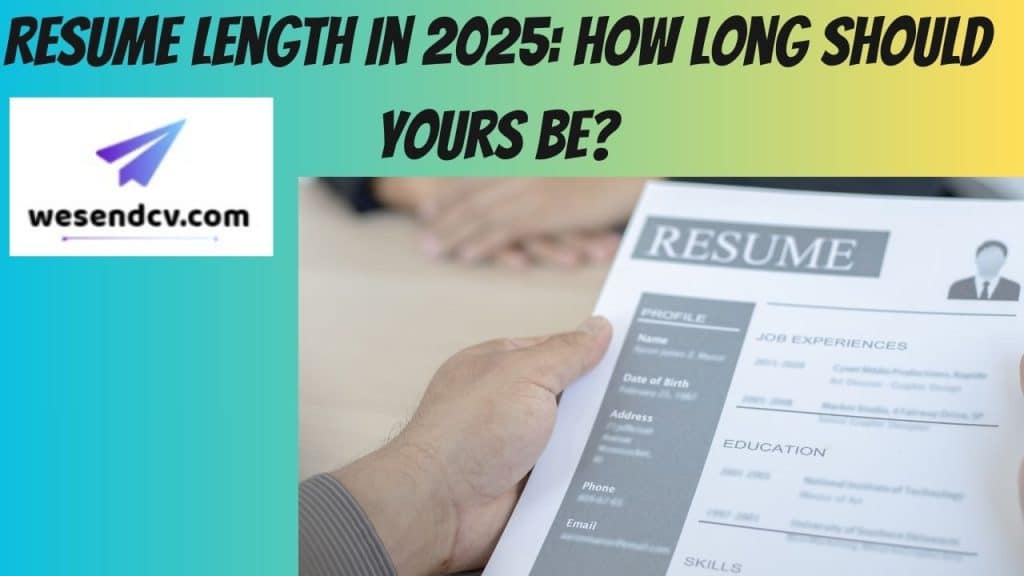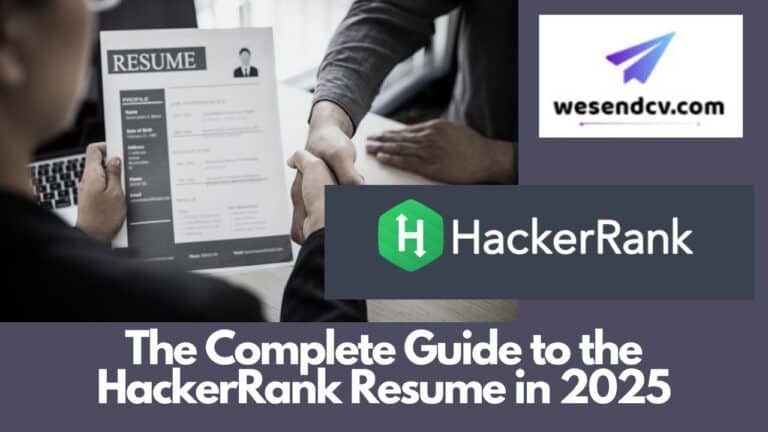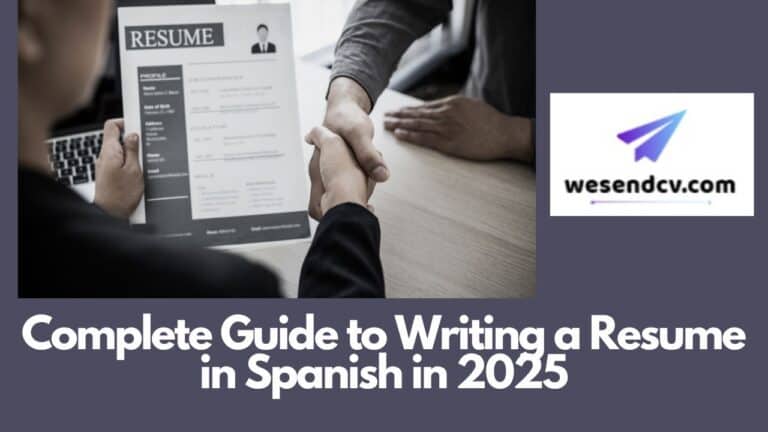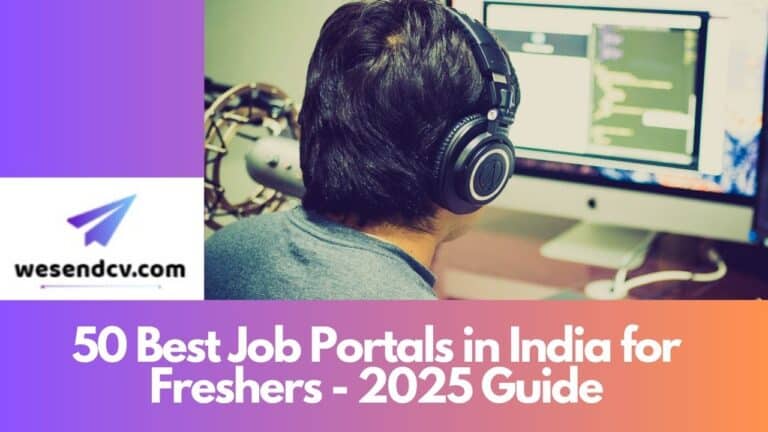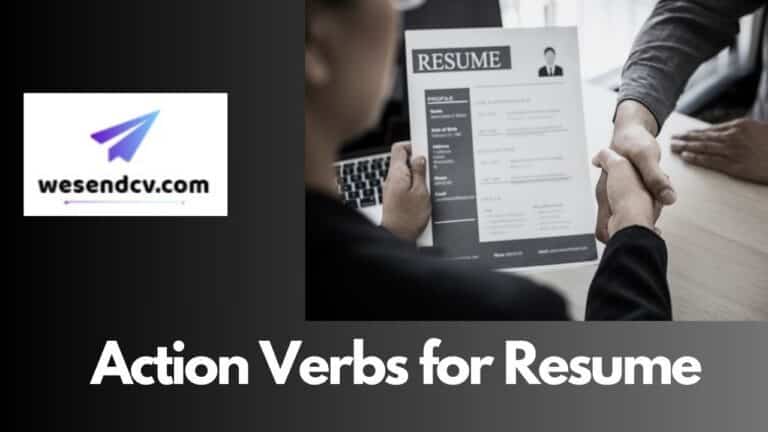The question of resume length is one that comes up time and again: how long should your resume be? As we enter 2025, the rules around resume length are evolving. While there used to be hard-and-fast guidelines—like sticking strictly to one page—that’s no longer the case. The best length for your resume depends on several factors, including your experience level, industry, and the type of job you’re applying for.
This guide will break down everything you need to know about resume length in 2025, offering practical advice to help you get it just right.
Main Highlights of Content
ToggleWhy Resume Length Matters
Your resume is your first impression with a potential employer, so it’s crucial that it conveys your skills and experience efficiently. The length of your resume affects how easy it is for recruiters and hiring managers to quickly scan and find relevant information.
Here’s why getting the length right is important:
- Too short and you may not provide enough detail to show your value.
- Too long and you risk overwhelming the recruiter, who might only spend a few seconds looking at your resume.
In 2025, there’s a balancing act between including enough relevant information while keeping things concise and to the point.
General Resume Length Guidelines for 2025
Here’s a general rule of thumb for resume length based on your experience level:
1. Entry-Level and Early Career: 1 Page
If you have less than 5 years of experience, aim to keep your resume to one page. At this stage in your career, focus on your skills, education, internships, and any relevant projects. Employers looking for entry-level candidates expect a resume that’s to the point and shows potential.
Example:
- If you’re a recent graduate or just starting your career, use a single page to highlight key achievements, internships, and skills. A compact, well-organized resume will demonstrate your focus and clarity.
Pro Tip: Use tools like the Resume Length Calculator to determine if you’re on track with the correct page length based on your job role and years of experience.
2. Mid-Level Professionals: 1 to 2 Pages
For those with 5-10 years of experience, a two-page resume is often ideal. At this level, you’ve likely had a variety of roles, projects, and accomplishments that warrant more detail. However, be selective about what to include. Focus on the most relevant and recent positions that showcase your career progression.
3. Senior-Level Professionals: 2 to 3 Pages
If you’re a senior professional or executive, you might have 10+ years of experience and significant achievements. In this case, a two- to three-page resume can be appropriate. Ensure you’re including detailed accomplishments for leadership roles, major projects, and key responsibilities.
While it’s acceptable to have a longer resume at this level, always prioritize quality over quantity. Avoid bogging down your resume with irrelevant roles or outdated accomplishments from early in your career.
Factors That Affect Resume Length
Resume length isn’t just about how long you’ve been working—it also depends on your industry and the type of role you’re applying for. Here are a few other factors that influence resume length in 2025:
1. Industry Norms
Some industries, like tech or finance, may expect more detail, especially if you’re applying for a technical or leadership role. In fields like marketing or creative arts, a shorter, more concise resume might be more appreciated, focusing on outcomes and measurable results.
2. Type of Role
Technical roles might require more space to list out specific skills and tools you’ve used. For instance, software engineers may need to outline specific programming languages and projects they’ve worked on. On the other hand, a customer service role may require less technical detail but more focus on soft skills and outcomes.
Example:
- A software developer might use two pages to outline complex projects and technologies they’ve worked with, ensuring that the key skills are easily found. A customer service representative might keep it to one page, focusing on soft skills and measurable achievements like customer satisfaction improvements.
3. Level of Expertise
As you advance in your career, you gain more experience and take on larger projects. It’s important to highlight your growth, but be mindful not to get too bogged down with roles from early in your career that are no longer relevant.
Key Tips for Managing Resume Length in 2025
It’s easy to either over-explain or under-explain your qualifications. Here are some tips to help you get your resume length just right:
1. Tailor Your Resume to Each Job
Customizing your resume for each job you apply for is essential. This doesn’t mean starting from scratch every time, but rather adjusting your resume to highlight the most relevant skills and experiences. This also helps keep your resume concise.
Example:
If you’re applying for a role in data analysis, focus on relevant projects, software, and tools. Remove any experience that doesn’t apply, like unrelated customer service positions from earlier in your career.
2. Use Bullet Points
Avoid long paragraphs. Use bullet points to make your resume easier to scan. Each point should highlight an accomplishment or responsibility, focusing on what you did and the results you achieved.
3. Prioritize Recent Experience
Your most recent experience is typically the most relevant. For older jobs (especially those more than 10 years old), it’s okay to list them briefly or exclude them entirely if they’re no longer relevant.
4. Include Only Relevant Information
While you might be proud of every role you’ve had, not every job needs to be detailed on your resume. Focus on the positions that relate directly to the job you’re applying for.
5. Cut Redundant Words
Be concise. Avoid unnecessary words or phrases that don’t add value. Keep your writing clear and to the point.
Example:
Instead of saying, “Successfully implemented a new project management system that led to better time management across teams,” simply say, “Implemented new project management system, reducing team delivery times by 15%.”
Why You Shouldn’t Overthink the Length
While there are guidelines to follow, it’s important not to stress too much about hitting an exact number of pages. What matters most is that your resume tells the story of your professional journey clearly, concisely, and in a way that grabs attention.
FAQs About Resume Length
Q: Should I stick to one page if I’m an entry-level candidate?
A: Yes, for most entry-level candidates, one page is the best length. Keep it focused on skills, education, and relevant experience like internships or volunteer work.
Q: Is it okay to have a three-page resume if I have a lot of experience?
A: For senior professionals or executives, three pages can be acceptable. Just ensure that every piece of information adds value.
Q: How do I handle gaps in my resume without making it too long?
A: Address gaps briefly without going into excessive detail. You can list skills you gained during the gap or mention any relevant personal projects.
Q: Is it necessary to include all of my past jobs?
A: No, only include jobs that are relevant to the role you’re applying for, especially if you have significant experience.
Wrapping Up
In 2025, the key to resume success is balance. Whether you’re early in your career or a seasoned professional, the goal is to provide enough detail to show your value, without overwhelming the reader. Use tools like the Resume Formatting Tool to help you optimize your resume structure and ensure it’s easy to read.
When in doubt, follow the guidelines above to create a resume that’s the right length for your level and industry, making sure to focus on relevance, clarity, and impact. The right length will make it easier for recruiters to see your value—and ultimately land you the job you’re aiming for.
